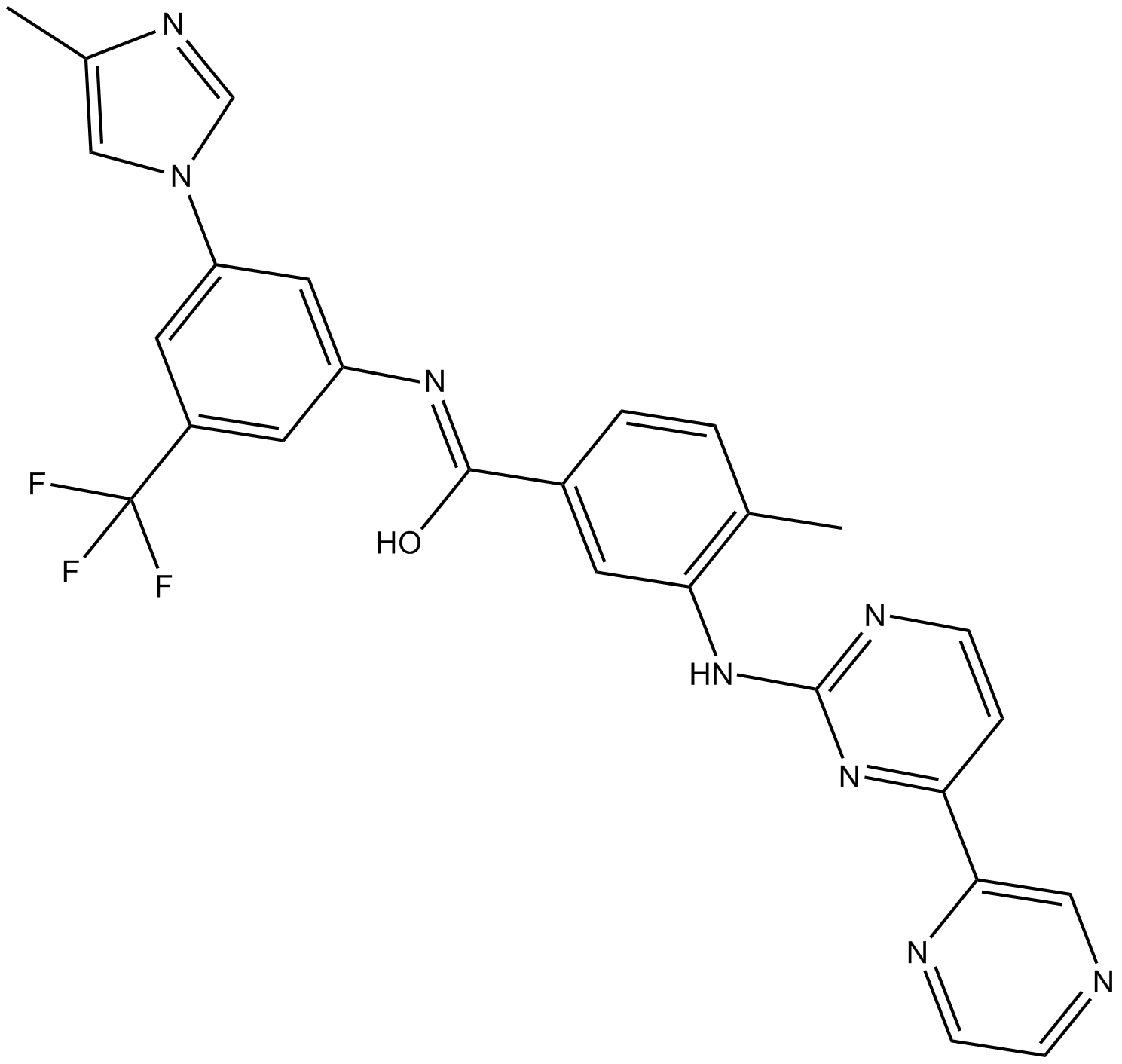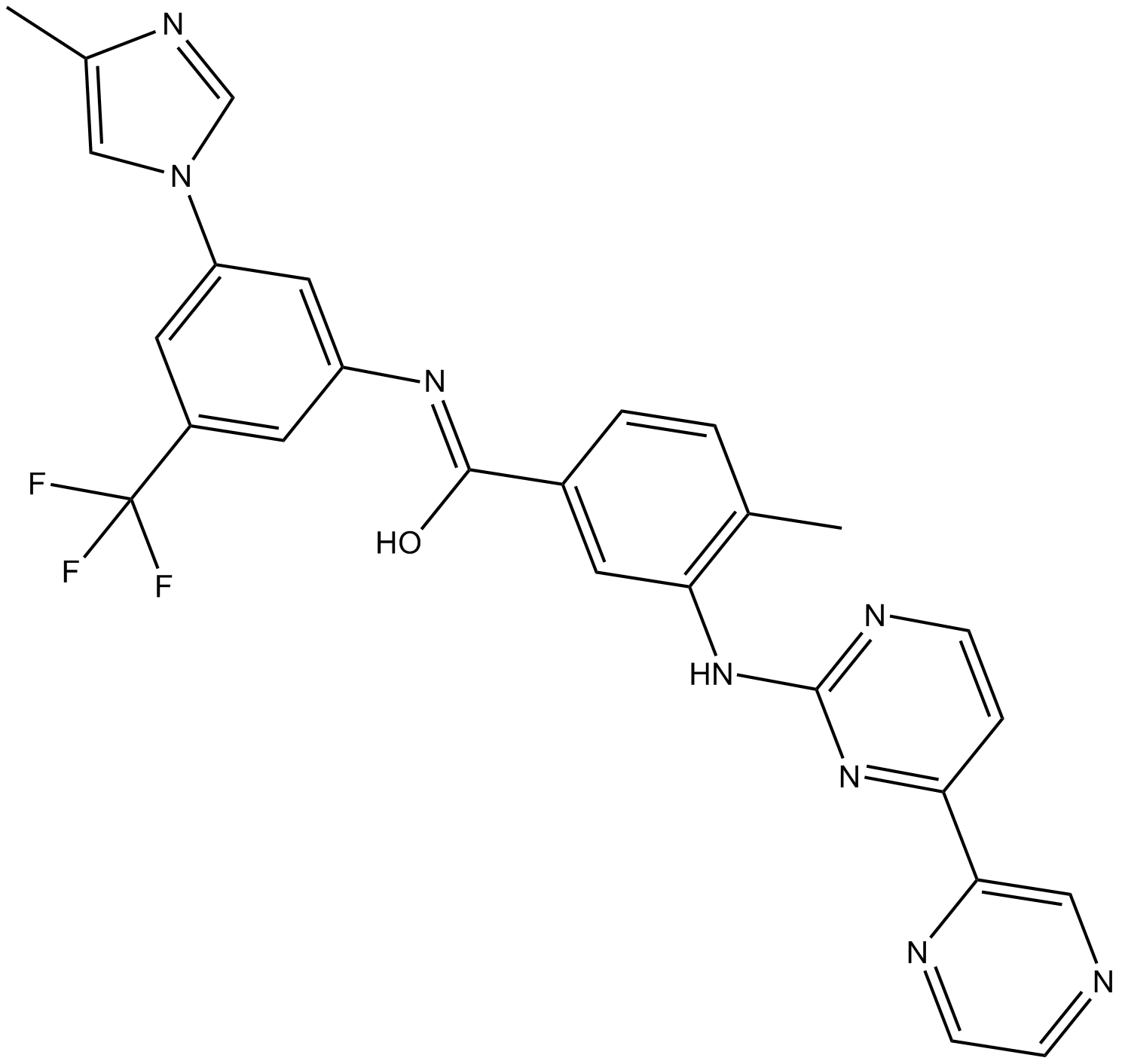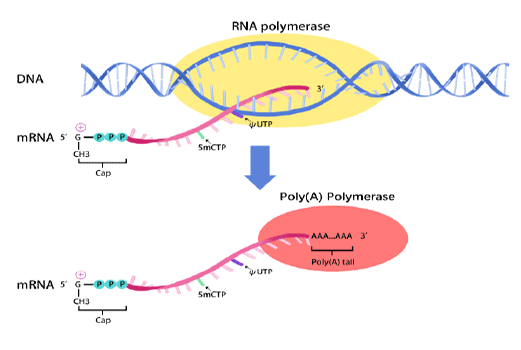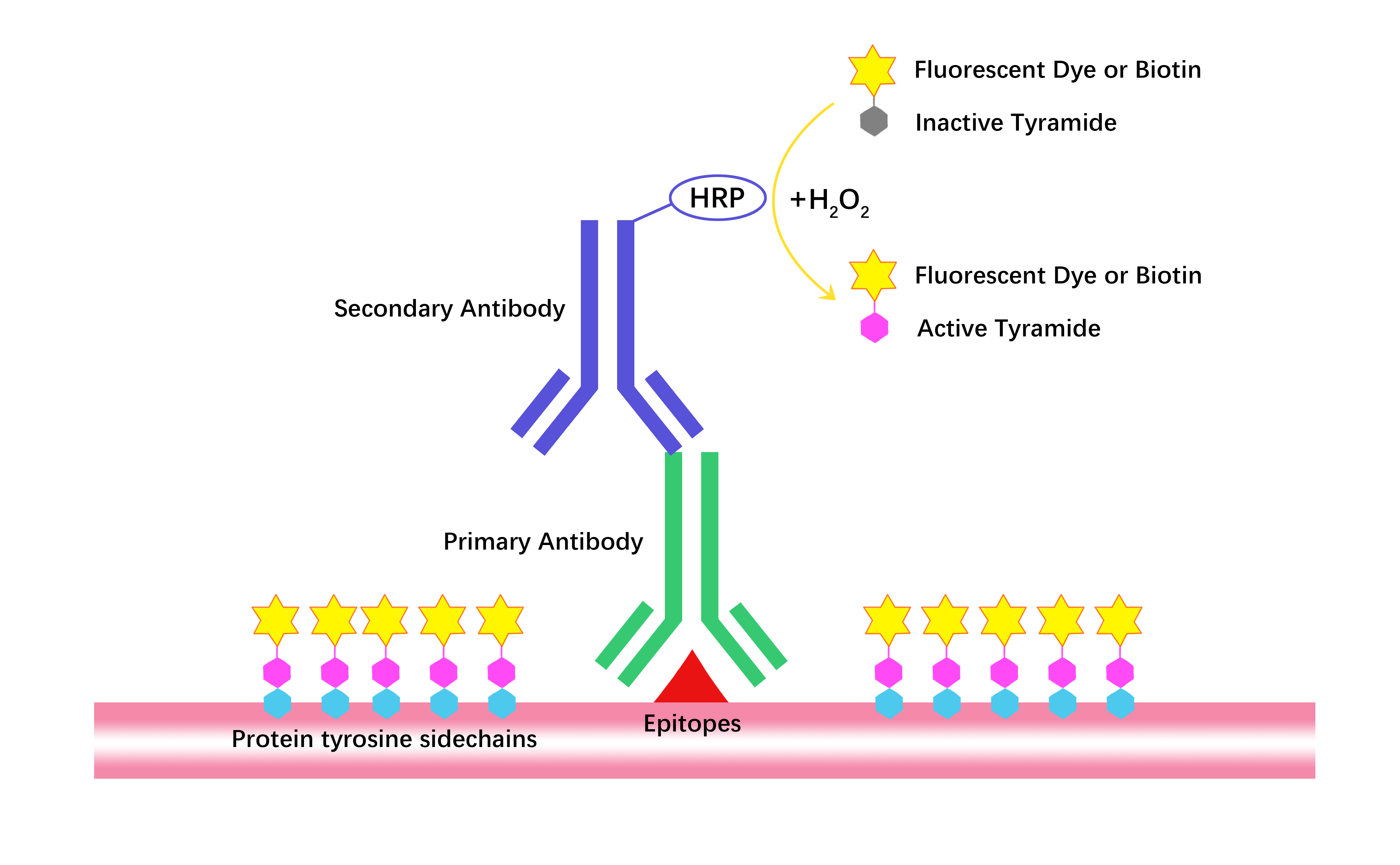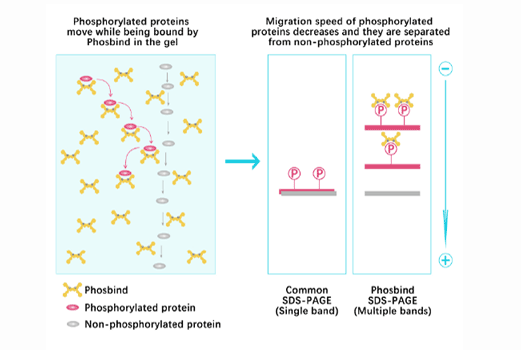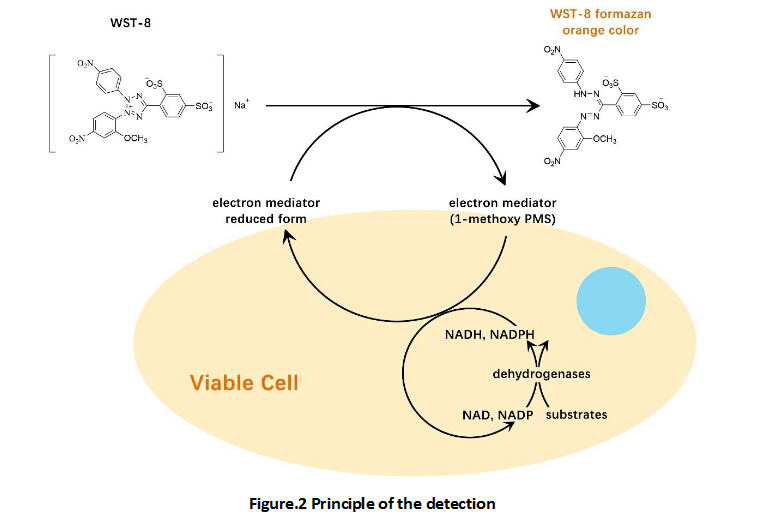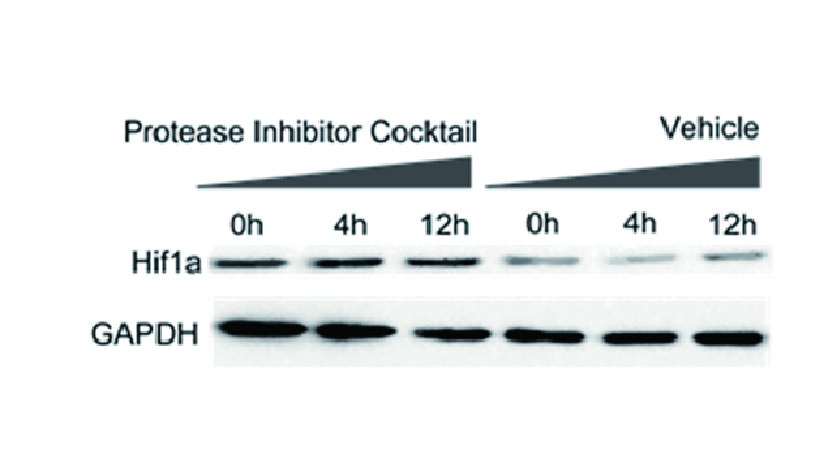Radotinib(IY-5511)
Radotinib(IY-5511) is a novel and selective Bcl-Abl tyrosine kinase inhibitor. [1]
Bcl-Abl is a constitutively activated chimeric tyrosine kinase which is the genetic abnormality expressed in patient with CML (chronic myeloid leukemia).
In vitro, radotinib couples to Bcr-Abl and reduce the phosphorylation of Bcr-Abl target protein CrkL. The pre-clinical studies shows superiority of radotinib to imatinib in both wild-type and mutant BCR-ABL1 positive CML cell lines. [1]
In a phase I clinical trial, dose up to 1000 mg/day of radotinib exhibits no dose-limiting toxicities. Phase II study proves radotinib to be an effective and well tolerated in chronic phase-chronic myeloid leukemia patients with resistance and/or intolerance to Bcr-Abl1 tyrosine kinase inhibitors. [1]
Reference:
1. Kim SH, Menon H, Jootar S et al. Efficacy and safety of radotinib in chronic phase chronic myeloid leukemia patients with resistance or intolerance to BCR-ABL1 tyrosine kinase inhibitors. Haematologica. 2014 Jul;99(7):1191-6.
| Physical Appearance | A solid |
| Storage | Store at -20°C |
| M.Wt | 530.5 |
| Cas No. | 926037-48-1 |
| Formula | C27H21F3N8O |
| Solubility | ≥13.73mg/ml in DMSO with warming; insoluble in EtOH; insoluble in H2O |
| Chemical Name | (Z)-4-methyl-N-(3-(4-methyl-1H-imidazol-1-yl)-5-(trifluoromethyl)phenyl)-3-((4-(pyrazin-2-yl)pyrimidin-2-yl)amino)benzimidic acid |
| SDF | Download SDF |
| Canonical SMILES | CC1=C(NC2=NC=CC(C3=CN=CC=N3)=N2)C=C(/C(O)=N/C4=CC(N(C=N5)C=C5C)=CC(C(F)(F)F)=C4)C=C1 |
| Shipping Condition | Small Molecules with Blue Ice, Modified Nucleotides with Dry Ice. |
| General tips | We do not recommend long-term storage for the solution, please use it up soon. |
| Cell experiment [1]: | |
|
Cell lines |
Bone marrow cells (BMCs) from patients with AML |
|
Preparation method |
The solubility of this compound in DMSO is > 26.6mg/mL. General tips for obtaining a higher concentration: Please warm the tube at 37 ℃ for 10 minutes and/or shake it in the ultrasonic bath for a while. Stock solution can be stored below -20℃ for several months. |
|
Reacting condition |
1, 10, and 100 µM, 72 h, 37 ℃ |
|
Applications |
Radotinib is an inhibitor of BCR-ABL1 tyrosine kinase and has been approved for the second-line treatment of chronic myeloid leukemia. In BMCs from patients with AML, radotinib increased cleaved caspase-3, caspase-7, and caspase-9 levels, resulting in increasing apoptosis. Radotinib also induced G0/G1 phase arrest and inhibited proliferating of BMCs from patients with AML. |
| Clinical experiment [2]: | |
|
Clinical samples |
Patients at least 18 years of age with Philadelphia chromosome-positive chronic phase-CML with resistance and/or intolerance to imatinib. |
|
Dosage form |
400 mg, twice daily |
|
Application |
Patients’ response to radotinib is comparable to other 2nd-generation tyrosine kinase inhibitors. Radotinib is well tolerated and effective in chronic phase-chronic myeloid leukemia patients with resistance and/or intolerance to imatinib. |
|
Other notes |
Please test the solubility of all compounds indoor, and the actual solubility may slightly differ with the theoretical value. This is caused by an experimental system error and it is normal. |
|
References: [1]. Heo S K, Noh E K, Gwon G D, et al. Radotinib inhibits acute myeloid leukemia cell proliferation via induction of mitochondrial-dependent apoptosis and CDK inhibitors[J]. European journal of pharmacology, 2016, 789: 280-290. [2]. Kim S H, Menon H, Jootar S, et al. Efficacy and safety of radotinib in chronic phase chronic myeloid leukemia patients with resistance or intolerance to BCR-ABL1 tyrosine kinase inhibitors[J]. Haematologica, 2014: haematol. 2013.096776. | |
Quality Control & MSDS
- View current batch:
Chemical structure
